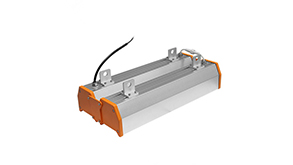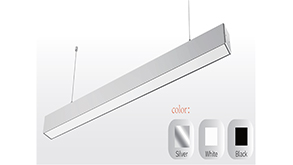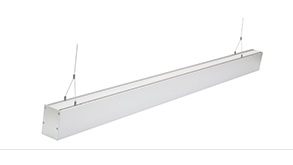Intelligent Interconnected Lighting To Help UN To Achieve Its Sustainable Development Goals
Published time:2018-10-24 09:27:00
Intelligent interconnected LED lighting and urban data work together, will effectively reduce more than 60% of urban carbon emissions, help to achieve the goal of sustainable development of the United Nations.
Philips Lighting announced at a special session of the United Nations that the combination of intelligent interconnected LED road lighting and standardized urban data will effectively help achieve the United Nations sustainable development goals.
According to a report jointly issued by Philips Illumination and the World Urban Data Council (WCCD), the greenhouse gas emissions of Los Angeles in the United States have been reduced by 63% after the use of intelligent interconnected LED lighting. This smart city solution can be replicated on a large scale around the world, bringing benefits such as reducing crime rates, ensuring traffic safety and even developing economies.
Philips Lighting advocates that by 2025, 100% of road lighting will be converted to LED lighting, thus reducing the share of lighting in global energy consumption from 15% to 8%.
Philips Lighting (Amsterdam European Stock Exchange Code: LIGHT), the global lighting leader, recently announced at a special session of the United Nations that the introduction of intelligent interconnected LED road lighting systems can save urban energy consumption and reduce urban carbon emissions by nearly two-thirds.
At a special meeting of the United Nations Headquarters in Manhattan, New York, Local 2030: Hub for Sustainability Solutions, Philips Lighting stressed the need for high-quality data in order to gain a more intuitive understanding of the value of intelligent interconnected LED lighting systems. Therefore, Philips Lighting announced its cooperation with the World Urban Data Council (WCCD), which will work with cities around the world to provide solutions to meet the needs of high-quality urban data analysis.
The report, published jointly by Philips Lighting and the World Urban Data Committee, shows that by using intelligent interconnected LED road lighting systems, energy consumption in Los Angeles in 2016 was reduced by 63 percent, spending savings of $9 million and greenhouse gas emissions from public lighting in Los Angeles were reduced by 47 percent annually. 000 tons, which is equivalent to about 2 of the total annual emissions of about 10000 passenger cars.
Philips Lighting said that if intelligent interconnected LED road lighting systems could be introduced into cities around the world, the total annual carbon emissions and electricity expenditure in these cities would be significantly reduced.
The report shows that the use of higher-quality lighting can benefit cities a lot, even reduce crime rates and increase the sense of security of citizens. In the first two years of the Smart Interconnected LED Building Lighting Project in Los Angeles, urban crime rates (especially vehicle theft, burglary and vandalism) dropped by 10.5%. The benefits of intelligent interconnected LED road lighting also include comprehensive improvements in traffic safety, urban landscape, and economic upgrade. The above advantages add to the picture of reduced carbon emissions from smart interconnected LED lighting. Intelligent interconnected LED lighting, by its very nature, has made a tremendous contribution to achieving the United Nations sustainable development goals (through global collaboration to achieve a sustainable future by 2030).
- Title :May Day Day-off Notice
- Panasonic Mercury Lamp Will Be Shut Down To Promote Conversion of LED Lighting Products
- Problems Faced by China LED Industry
- How To Apply LED Lighting Healthfully
- Why can LED Plant Lights Shorten the Plant Growth Cycle?

.png)







